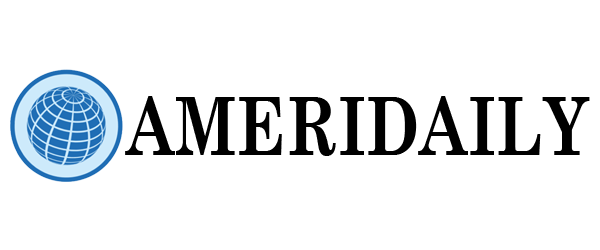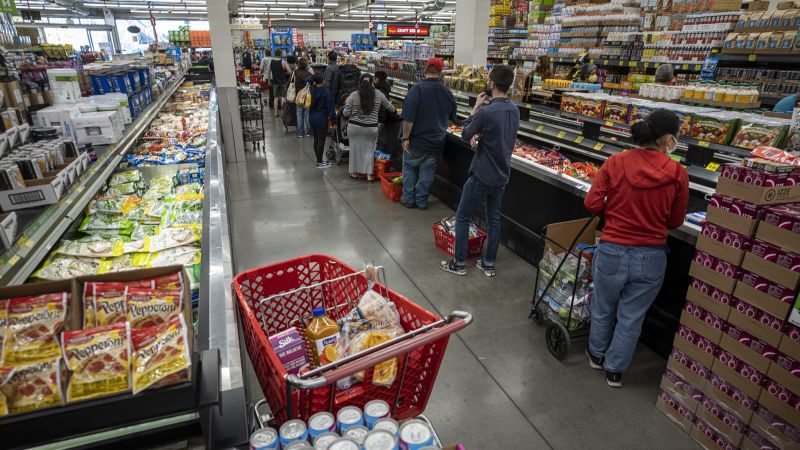Economy
July’s Subdued Inflation Could Lead to Fed Rate Pause
“Subdued Inflation Persists: July’s inflation figures indicate a continued easing of price pressures, potentially dissuading the Federal Reserve from proceeding with an interest rate hike in its forthcoming September meeting.”
The consumer-price index, which measures goods and services prices throughout the economy, exhibited a modest 0.2% rise in July, mirroring June’s numbers, as reported by the Labor Department on Thursday. Core prices, excluding volatile food and energy categories, also displayed a mere 0.2% increase in both months, signaling a broader deceleration in price escalation.
These statistics contributed to a 3.2% annual inflation rate in July, slightly up from June’s 3%. Meanwhile, annual core inflation dipped from June’s 4.8% to 4.7% in July.
This increase in annual inflation was notably influenced by the circumstances in July of the previous year, serving as a basis for comparison. Economists anticipate the annual inflation rate won’t decrease significantly this year, partly due to what’s known as base effects.
Positive inflation news translated to a slight uptick in U.S. stocks. The S&P 500 saw a marginal gain of less than 0.1%, while the Dow Jones Industrial Average increased by 0.2% and the Nasdaq Composite rose by 0.1%. The benchmark 10-year U.S. Treasury yield inched up to 4.081%.
Unlock a remarkable 70% discount on a 2-Year Wall Street Journal Print Subscription
Core inflation holds greater significance for Fed officials, as it offers a more accurate prediction of future inflation compared to the overall inflation rate.
The recent trend in core CPI data adds to the growing uncertainty about whether the central bank will proceed with further rate hikes this year, a path most officials had initially projected in June.
The new figures led to a decrease in the three-month annualized core inflation rate, down from 5% in May to 3.1%, marking the lowest reading in two years. Laurence Meyer, a former Fed governor, expressed astonishment, stating, “My God, that’s incredible. There’s absolutely no question that core inflation has turned the corner faster than the Fed anticipated.”
3-Year Digital Subscription for Both The Economist and Barron’s
Even prior to this report, a handful of Fed officials hinted at the possibility of pausing interest-rate increases, having raised them in 11 out of the past 12 central bank meetings. In the most recent adjustment, the central bank increased rates to a range between 5.25% and 5.5%, marking the highest point in 22 years.
While most officials projected in June that rates would rise to a range between 5.5% and 5.75% this year, the marked slowdown in inflation over the past two months has prompted a reevaluation. Their next meeting is scheduled for September 19-20.
“I believe we may be at the point where we can be patient and hold rates steady,” stated Philadelphia Fed President Patrick Harker in a recent speech. Boston Fed President Susan Collins echoed this sentiment, suggesting that a pause might be necessary in the near future.
However, some remain cautious, as recent data suggests a shifting economic landscape with the potential for a soft landing in terms of Subdued Inflation against signs of economic reacceleration, Subdued Inflation
Financial Times & Barron’s Access
“The playing field has opened up a lot,” noted Richmond Fed President Tom Barkin. “I don’t want to declare a reacceleration too quickly [or] declare inflation settling too quickly.”
Housing prices experienced a 0.4% increase in July, mirroring June’s uptick, and were responsible for over 90% of the overall CPI rise, as per the Labor Department.
Due to measurement lags, the slowdown in housing price increases, including rent, might take time to manifest in inflation data.
Kathy Bostjancic, Chief Economist at Nationwide Mutual, anticipates that the cooling trend in housing inflation for this year will continue, potentially applying downward pressure on core inflation.
Furthermore, used car prices dropped by 1.3% in July compared to June, continuing a reversal from the pronounced surge during the post-Covid economic rebound. This decline might also contribute to easing core inflation in the future, economists suggest.

